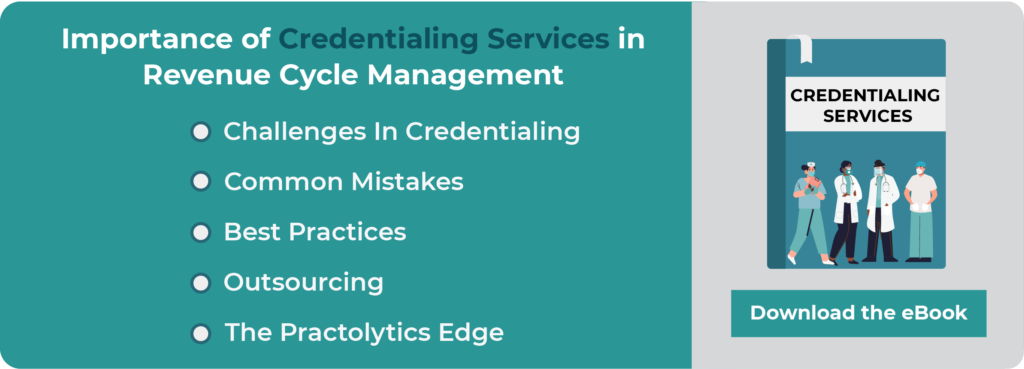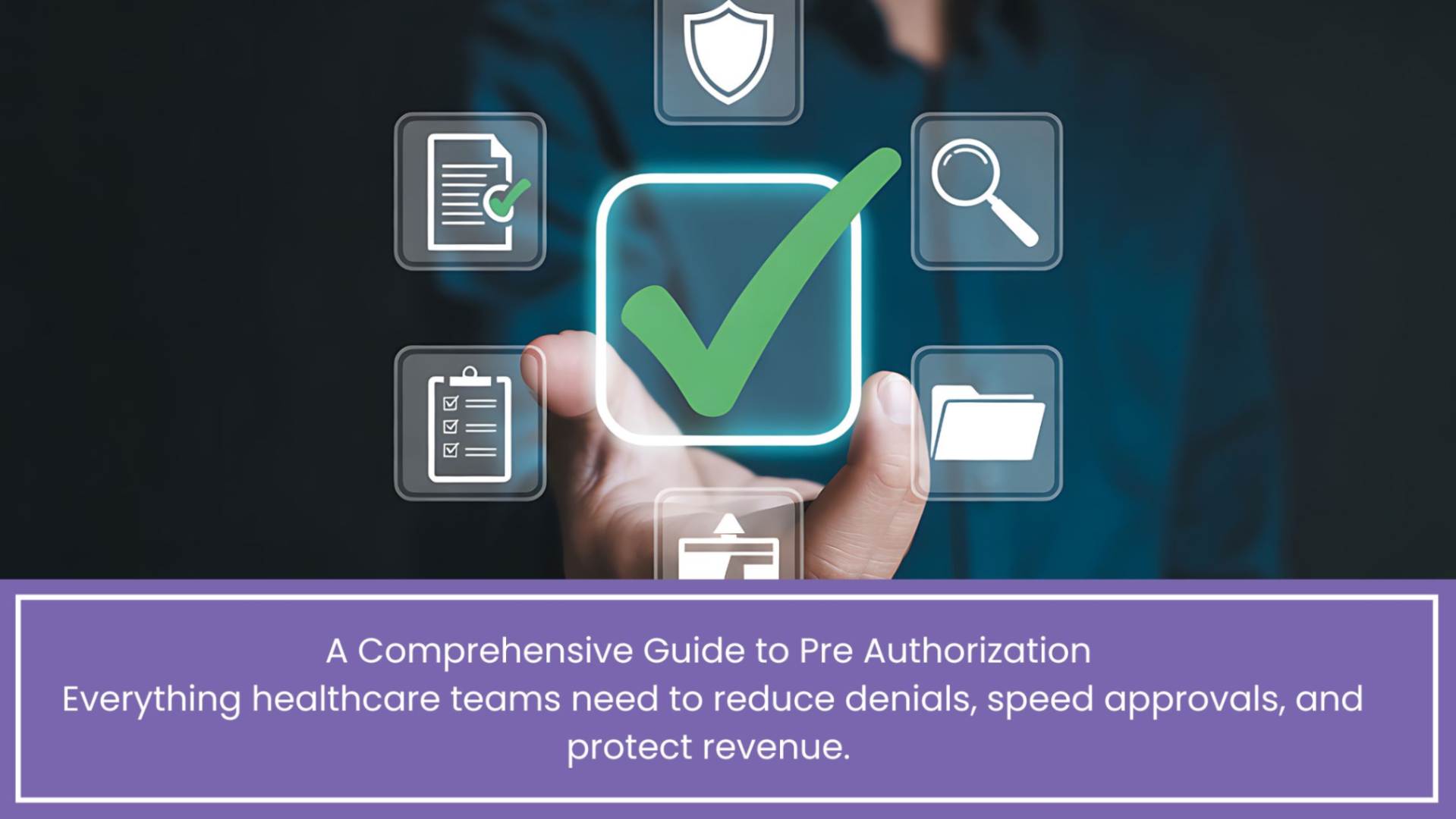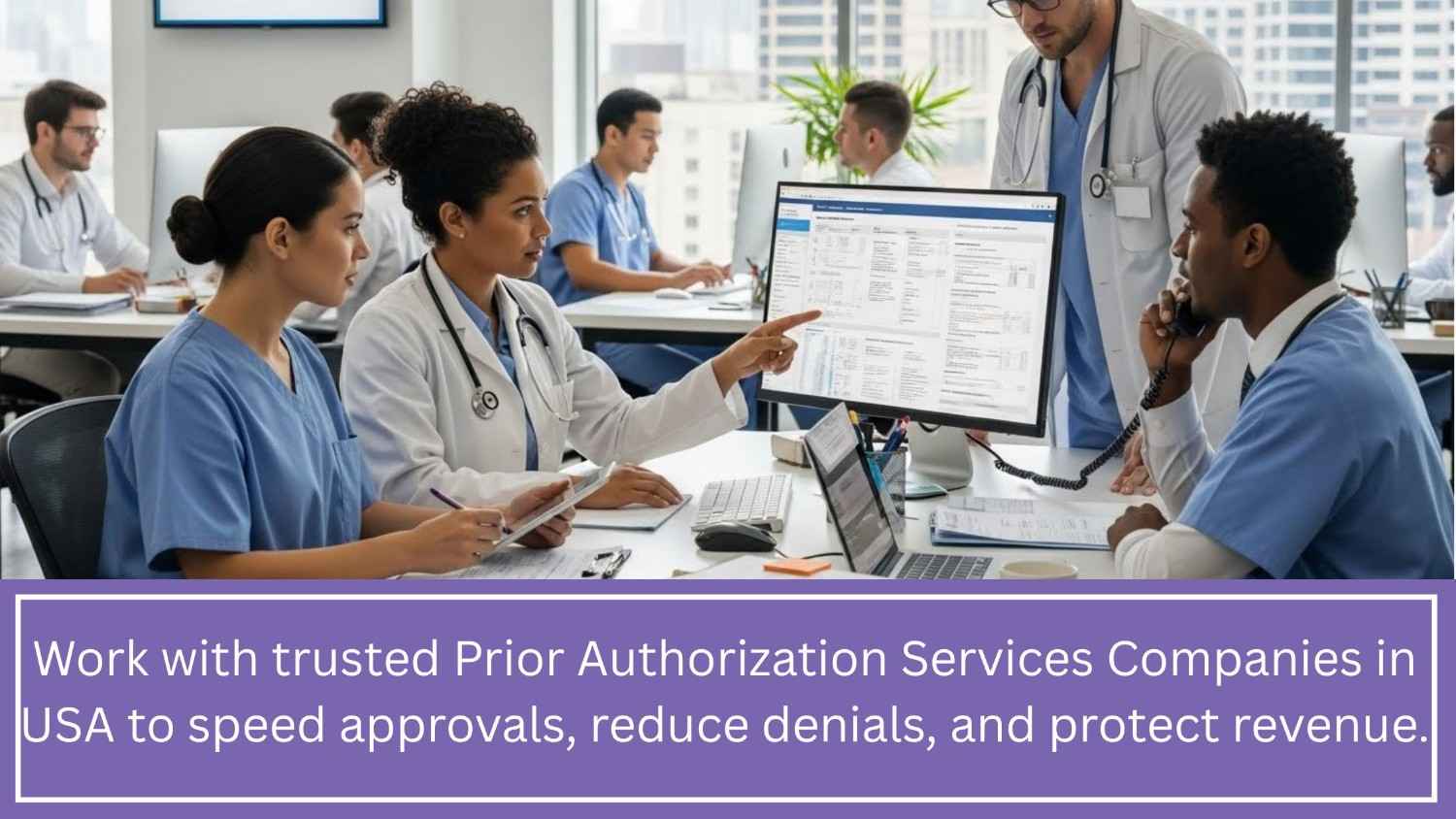Best Credentialing Firms for Telemedicine
Running a telemedicine practice means the Best Credentialing Firms for Telemedicine can make or break your momentum. Credentialing isn’t just paperwork—it’s the gateway to faster onboarding, steady revenue, and patient trust. From multi-state licensure challenges to complex payer requirements, the right partner turns delays into smooth approvals. In this guide, we compare MediBillMD, Bikham Healthcare, CureMD, PracticeWorx, and Practolytics to reveal who handles the red tape best. Whether you need speed, advanced tech integration, persistent follow-up, or complete revenue cycle management, you’ll discover which firm aligns with your goals. Telemedicine moves fast—your credentialing should, too.
Table of Contents
Top Credentialing Partners to Keep Your Telemedicine Practice Running Smoothly and Compliantly!
If you’ve ever tried to bring a new provider on board in a telemedicine practice, you probably know the medical credentialing process can feel like trying to sprint through quicksand. The forms, the verifications, the follow-ups, the back-and-forth with payers—every step is crucial, but also time-consuming. And when timelines stretch, revenue and patient access suffer.
Telemedicine only magnifies the urgency. Patients expect care without borders, but credentialing requirements don’t magically disappear just because your service is virtual. In fact, crossing state lines or working with multiple payers often means more paperwork, not less.
That’s why more practices are turning to specialized credentialing partners. These aren’t just outsourcing vendors—they’re allies who understand the rules, navigate the red tape, and keep your provider onboarding moving at full speed.
But not all firms take the same approach. We will look at five credentialing specialists—MediBillMD, Bikham Healthcare, CureMD, PracticeWorx, and Practolytics—to see how they stack up, what makes each unique, and which might fit different types of telemedicine operations.
Why Telemedicine Makes Credentialing Trickier?
Credentialing has never been a “quick and easy” process. Even in a traditional single-location clinic, you’re juggling license verifications, payer enrollments, CAQH updates, and compliance checks. But when telemedicine enters the picture, the complexity doesn’t just double—it multiplies.
Instead of dealing with one state board or a handful of local insurers, you’re now navigating a web of multi-state licensing rules, overlapping regulations, and payer-specific quirks that change far more often than you’d like.
Here’s what that really means in practice:
- Multi-state licensure headaches – Every state has its own requirements, forms, fees, and timelines. You might be greenlit in one state but stuck waiting months in another—for the exact same service. That’s not just an inconvenience; it’s lost revenue and fewer patients served.
- Payer variability – Medicare, Medicaid, and private insurers all have different credentialing checklists, and those lists can change with little notice. Miss one update and you risk a rejection or a restart.
- Security concerns – Credentialing involves highly sensitive provider and patient data. HIPAA compliance isn’t just a box to tick—it’s the foundation of trust. One slip can cost both credibility and clients.
Telemedicine credentialing is a lot like air traffic control. When it’s well-coordinated, providers start on time, patients get seen without delays, and the whole system runs smoothly. But when it’s mishandled, the backups can ripple through schedules, finances, and patient trust.
Ethics Behind the Paperwork!!!
Credentialing isn’t just paperwork—it’s a promise. In telemedicine, that promise matters even more. Patients can’t glance at diplomas in a waiting room or get a feel for the office environment. They’re relying entirely on the platform or practice to verify that their provider is qualified, competent, and safe to see.
That responsibility is carried out through:
- License verification – Ensuring the provider is legally authorized to practice in every state they serve.
- Education and training checks – Confirming credentials match the care being offered.
- Work history review – Looking for red flags like malpractice claims or disciplinary actions.
- Board certification checks – Verifying that providers stay current in their field.
- Continuous monitoring – Because credentials can change, and yesterday’s clean record doesn’t guarantee tomorrow’s.
In telemedicine, skipping any of these steps isn’t just a technical error—it’s a risk to patient safety. The virtual care environment leaves very little margin for mistakes, and the consequences can be far-reaching.
What the Best Firms Do Differently?
Top-tier telemedicine credentialing partners understand that this work is about more than forms and signatures. They:
- Streamline workflows to cut credentialing time from months to weeks.
- Track and adapt to every payer’s rule changes.
- Provide real-time updates so clients aren’t left guessing.
- Actively follow up with payers instead of waiting for responses.
- Build compliance into every single step.
Choosing the right partner isn’t about finding the lowest price. It’s about deciding whether your telemedicine program will grow smoothly—or be constantly slowed by red tape. The best credentialing teams keep your providers moving forward, your compliance solid, and your patient trust intact.
Meet Five Credentialing Leaders!
We looked at five credentialing firms with proven telemedicine experience. They all excel in their own way, but their strengths differ. Here’s the rundown:
1. MediBillMD – Performance-Powered Credentialing
MediBillMD takes a “you win, we win” approach. Instead of charging upfront, they get paid a percentage of your monthly collections after credentialing is completed successfully.
Why it matters: That structure aligns their motivation with yours. If they don’t get you credentialed quickly and correctly, they don’t get paid.
They’ve worked across 45+ medical specialties, which means they can handle the quirks of different provider types without fumbling. For telemedicine practices that can’t afford delays, this performance-based model is a strong motivator.
2. Bikham Healthcare – Relentless, Appeals-Ready Support
Bikham, don’t just submit applications—they fight through the entire process, including appeals.
They handle CAQH updates, PECOS enrollment, and keep chasing payers until the job’s done. For telemedicine providers dealing with closed networks or tough payer landscapes, that persistence can make the difference between sitting on a waitlist and getting approved.
3. CureMD – Tech That Speeds Up the Process
CureMD plays the technology card hard. Their credentialing is integrated into a bigger system that includes an advancedMD EHR software, billing, and RCM tools.
That integration means:
- Automated application processing.
- License tracking and reminders.
- Real-time dashboards so you can see exactly where things stand.
Result? Credentialing timelines drop from months to weeks. For multi-state telehealth groups, that speed is gold.
4. PracticeWorx – Focused and Flexible
PracticeWorx sticks to what it does best: credentialing and insurance enrollment.
They work with all kinds of providers—doctors, dentists, therapists, lab techs—and tweak their process to fit each type. They handle document verification, renewals, demographic updates, and payer submissions nationwide.
If you want specialized credentialing without the extras, they’re a dependable pick.
5. Practolytics Credentialing Plus End-to-End Revenue Cycle Mastery
At Practolytics, we believe credentialing shouldn’t be a frustrating bottleneck—it should be the first step toward a smooth, profitable revenue cycle. That’s why we don’t treat it as a separate task. We build it right into our full healthcare revenue cycle management process, making sure every step from onboarding to payment is connected.
In telemedicine, a delay in credentialing isn’t just an inconvenience. It pushes back when providers can start seeing patients, which in turn delays billing, slows cash flow, and leaves revenue on the table. We’ve seen it happen, and we’ve built our process to prevent it.
When we handle your credentialing, we’re already thinking about the bigger picture—how your provider’s information will flow seamlessly into payer enrollments, claims, and reimbursement systems. With deep experience working with national insurers, Medicare, Medicaid, and regional payers, plus the ability to handle complex multi-specialty telehealth setups, we make sure nothing gets overlooked.
We use smart automation to gather data and prepare applications quickly, but we never rely on technology alone. Every application is reviewed by experienced credentialing managers who catch and fix issues before they cause delays.
Because we also manage your RCM, we can identify and correct potential medical billing roadblocks early—before they affect payments. Our clients appreciate our transparency: you’ll always know exactly what’s submitted, what’s pending, and what’s next.
If you want a credentialing partner who’s fast, accurate, and committed to keeping your revenue moving from day one, Practolytics delivers. We don’t just get you credentialed—we set you up for long-term success.
Finding the Right Fit!
These five firms share the same mission: making credentialing an asset rather than an obstacle. But their strengths shine in different ways:
- MediBillMD aligns incentives with performance, ensuring they’re as invested in your success as you are.
- Bikham Healthcare is the persistent partner who never lets an application stall.
- CureMD brings speed and efficiency through automation and system integration.
- PracticeWorx offers tailored, relationship-driven support for diverse provider needs.
- Practolytics connects credentialing with the full revenue cycle, creating a seamless path from provider onboarding to payment.
When it comes to choosing the right partner, it’s all about your priorities. Maybe you value lightning-fast turnaround times. Maybe you need a team that fights hard on appeals. Or perhaps you want technology that speeds things up, expertise tailored to your specialty, or a partner that integrates perfectly with your whole system. Whatever matters most to your practice, we make sure credentialing supports it seamlessly.
Why Practolytics Might Be Your Best Move?
At Practolytics, we believe credentialing isn’t just about getting a provider into a network—it’s about setting them up for long-term billing success from day one.
We’ve built our credentialing services on the same foundation that powers our RCM solutions: accuracy, transparency, and proactive problem-solving. That means fewer rejections, faster payer approvals, and no nasty billing surprises after a provider starts seeing patients.
For telemedicine, our value goes even further. We understand the complexity of multi-state licensing, diverse payer rules, and the importance of speed without sacrificing compliance. Our systems blend automation for efficiency with human expertise for precision. And because credentialing is integrated with our RCM services, you get one partner tracking your provider’s journey from onboarding through every dollar of reimbursement.
The result? Less downtime. Faster cash flow. And the peace of mind that comes from knowing your credentialing isn’t just handled—it’s optimized for your practice’s financial health.
Talk to Medical Billing Expert Today — Get a Free Demo Now!






